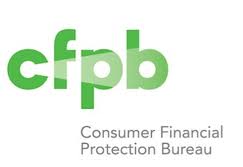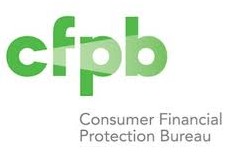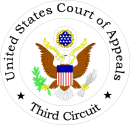When a law firm uses its letterhead to collect debt for its client, it “cannot disclaim the fact that he or she is engaging in the practice of law when using law firm letterhead,” states a recent joint opinion by the New Jersey Committee on the Unauthorized Practice of Law and the Advisory Committee on Professional Ethics. 1 Rejects Lawyers’ Use of Greco Disclaimers The Opinion directly contradicts the Second Circuit Court of Appeals’ decision in Greco v. Trauner, Cohen & Thomas, LLP.2 In Greco, the court explained that: attorneys can participate in debt collection in any number of ways,…
Posts published by “Donald Maurice”
Donald Maurice provides counsel to the financial services industry, successfully litigating matters in the state and federal courts in individual and class actions. He has successfully argued before the Third, Fourth and Eighth Circuit U.S. Courts of Appeals, and has represented the financial services industry before several courts including as counsel for amicus curiae before the United States Supreme Court. He counsels clients in regulatory actions before the CFPB, and other federal and state regulators and in the development and testing of debt collection compliance systems. Don is peer-rated AV by Martindale-Hubbell, the worldwide guide to lawyers. In addition to being a frequent speaker and author on consumer financial services law, he serves as outside counsel to RMA International, on the governing Board of Regents of the American College of Consumer Financial Services Lawyers, and on the New York City Bar Association's Consumer Affairs Committee. From 2014 to 2017, he chaired the ABA's Bankruptcy and Debt Collection Subcommittee. For more information, see https://mauricewutscher.com/attorneys/donald-maurice/
Prelude: In 2010, the Federal Trade Commission released a study entitled “Repairing A Broken System: Protecting Consumers in Debt Collection Litigation and Arbitration.” What follows is part two of a report on their latest repair efforts. In a February blog post, I explored the Federal Trade Commission’s press release equating a potential defense (the expiration of a limitations period) with a legal right. I’m headed back to that same press release to consider another questionable call from the FTC’s efforts to “repair a broken system.” So today, here is Chapter Two: “How to Confuse People Into Believing You Are Furnishing Negative Credit Information Concerning Them.”…
As reported today in the Consumer Law and Policy Blog, University of Utah Law Professor Christopher L. Peterson joined the Consumer Financial Protection Bureau as a Senior Counsel for Enforcement Strategy. Although Professor Peterson and I do not see eye to eye on many issues, over the past decade his scholarly works have impacted consumer financial services law. If you ever have the opportunity to hear Chris speak on consumer financial services law, do so. You might not like what you hear, but he knows how to make his point in a way that captures your attention.
Sending verification in response to a consumer’s written demand for verification under 15 U.S.C. § 1692g, which also contains a cease and desist demand, does not violate § 1692c under a holding from the Western District of New York in Marino v. HoganWillig, PLLC, 11-cv-453 (W.D. NY April 24, 2012). The Court refused to read § 1692c(c) to prohibit sending a consumer § 1692g(b) validation because it would place a debt collector “into a frozen state where it could not seek to collect the debt because compliance with Section 1692g(b) would violate Section 1692c(c).” The court cited the unpublished opinion in Recker…
Chris Christie came into office on a promise to take the NJ Supreme Court off “its pedestal” and place it on a equal footing with the legislative and executive branches. The Star Ledger reports on the devisiveness that has permeated relations between NJ’s Governor and the Courts and its impact upon NJ’s legal system. You can read the article here.
The Wall Street Journal reports this morning that the private equity arm of Goldman Sachs along with PE player Advent International have agreed to acquire TransUnion. The deal is valued at $3 billion. The press release from Advent is here.
Yesterday the Consumer Financial Protection Bureau (“CFPB”) released its proposed rule “Defining Larger Participants in Certain Consumer Financial Product and Service Market.” The proposed rule calls for the CFPB to regulate certain attorneys to protect the public welfare. Why? Becuase, Collection attorneys and law firms may collect through litigation (i.e., filing suit against consumers to collect debt). How dare those attorneys file complaints and litigate lawsuits. You can bet I’ll have a little more on the topic in a few days.
Last month the Missouri Supreme Court handed down a decision concerning a failure of proof in establishing chain of title on assignment of debt. The decision itself is unremarkable and you can read it here CACH v. Askew. The problem was simple – no testimony was proffered concerning the account being included in the prior assignee’s bill of sale, rather the trial court inferred the account was included in a “Schedule A” which should have been, but was not, attached to the prior assignee’s bill of sale. A few years back I participated in a teleconference for ACA International explaining bill…
The Federal Trade Commission had an epiphany last week – debt collectors must disclose in their communications that a debt subject to a statute of limitations defense creates a “legal right” which prevents a creditor from filing a lawsuit. Read it here: FTC Press Release, 1/30/12. It only took the federal agency 33 years of enforcing the Fair Debt Collection Practices Act (15 U.S.C. § 1692) (the “FDCPA”) to come to this conclusion. Quite a milestone and quite a reflection of our times. Although I haven’t been working on FDCPA issues quite as long as my colleagues in Washington, I’ve…
On Day Two of the Consumer Financial Protection Bureau (“CFPB”), it unveiled its online Credit Card Complaint form. It is available here: http://tinyurl.com/3o9p8pr. Enter a complaint and the CFPB says “We’ll forward your issue to your credit card company, give you a tracking number, and keep you updated on the status of your complaint.” In keeping with the unique look of the CFPB’s website, the form is neat, sleek and real simple, but there’s a problem – credit card holders may lose important rights when deciding to use the CFPB’s portal as their only form of making disputes. Credit card…
A claim that a debt collector violated §1692g(a) of the Fair Debt Collection Practices Act (“FDCPA”) must be filed within one-year of the first communication, the Third Circuit recently held in Peterson v. Portfolio Recovery Associates, LLC, Case Nos: 10-2824 & 10-4013, 2011 U.S. App. LEXIS 11453 (3d Cir. June 6, 2011). In this decision, the first by a circuit court on the issue, the court specifically rejects the notion that subsequent communications by a debt collector can constitute separate and discreet violations of §1692g(a). Section §1692g(a) provides that a debt collector must provide a consumer with certain written disclosures…









